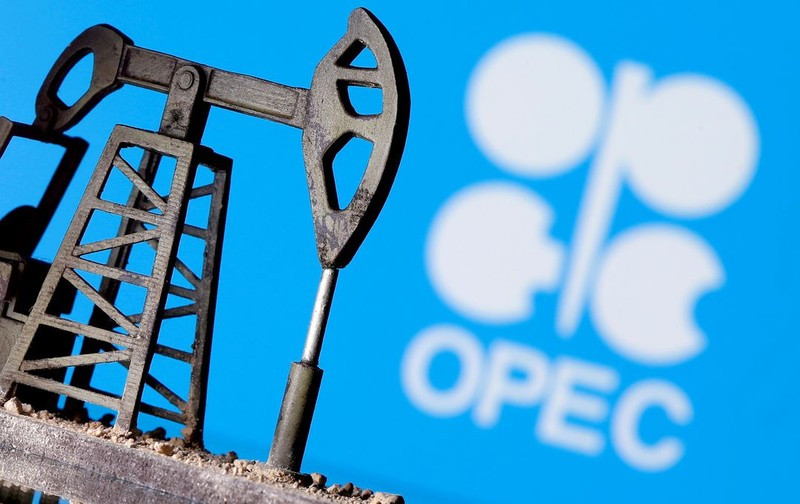Abdulaziz's statement came after Saudi Arabia announced it would extend voluntary production cuts of 1 million bpd in one month. In addition, Russia will also cut oil exports by 500,000 bpd in August.
Speaking at the 8th OPEC International Seminar in Vienna (Austria), Abdulaziz emphasized that the energy market will not be left alone and that the output policy announced on June 4 was a great effort to help countries understand OPEC+'s policy to stabilise the "black gold" market.
Earlier, Saudi Arabia, the world's largest oil exporter, announced it will cut supply by 1 bpd this July.
Russia will also cut oil exports by 500,000 bpd in August, in addition to previously announced production cuts.
Abdulaziz affirmed that Russia's cut in oil exports is voluntary, adding that OPEC will continue to increase transparency in the market by working with third parties and independent organisations to verify the production capacity of member countries.
OPEC+ currently accounts for about 40% of the world's total crude oil production. Last month, the alliance of 23 oil-producing nations agreed to stick to its current output policy until the end of 2024.
The total current OPEC+ production cuts are 3.66 million bpd, equivalent to about 3.7% of global demand, including the 2 million bpd reduction agreed last year and the voluntary reduction of 1.66 million bpd announced in April this year.
Voluntary production cuts by OPEC and non-OPEC producers have contributed to ensuring the stability of the global oil market.
The total current OPEC+ production cuts are 3.66 million bpd, equivalent to about 3.7% of global demand, including the 2 million bpd reduction agreed last year and the voluntary reduction of 1.66 million bpd announced in April this year.
At a meeting held on the sidelines of the 8th OPEC International Conference on July 5, the energy and oil ministers of OPEC member countries assessed market conditions and agreed to continue consultations with external partners to continue to support a stable and balanced oil market. The ministers also expressed support for the latest production cuts by Saudi Arabia, Russia and Algeria. Saudi Energy Minister Prince Abdulaziz bin Salman stressed that OPEC+ is working to combat uncertainties in the oil market, which is operating contrary to fundamentals and forcing oil producers to take preventive measures.
According to Abdulaziz, OPEC+ member countries need to remain vigilant and proactive to ensure the stability of the oil market as they are facing uncertain situations.
OPEC+ members Saudi Arabia, the United Arab Emirates (UAE), Iraq, Kuwait, Oman and Algeria announced they will continue to cut voluntary output until the end of 2024, amid concerns about a slowdown in economic growth affecting the outlook for crude oil demand. Crude oil prices are trending lower, although the International Energy Agency (IEA) forecasts global crude oil demand will reach record levels this year thanks to the recovery of the Chinese economy.
As a leader in the oil market, OPEC+ decisions can have a great impact on world oil prices. Russia and Saudi Arabia highly appreciate bilateral cooperation within the framework of OPEC+ through timely and effective measures to ensure a balance between both the supply and demand for oil.
















